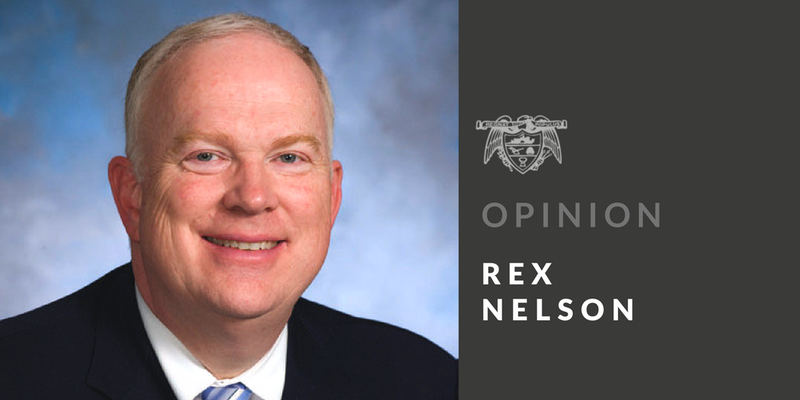A pause in Arkansas road trips and speaking engagements was necessitated by the pandemic. That has given me more time to read the many magazines that have piled up through the months. Among my most pleasurable experiences has been reading back issues of Arkansas Wildlife so I can better understand the good work being done across the state by employees of the Arkansas Game and Fish Commission.
As wildlife populations began declining due to commercial hunting and the lack of game laws in the early 1900s, Arkansas became one of just seven states without a conservation agency. In March 1915, Gov. George Washington Hays signed a bill creating such an agency. After a contentious debate in the Legislature, it was decided that there would be five commissioners to oversee this new entity. Funding would come from license fees and fines. D.G. Beauchamp of Paragould was the first commission chairman. At the initial meeting of the five commissioners, a system of game wardens and regulations was discussed.
In 1937, Congress passed the Pittman-Robertson Act to provide funding to states based on the sale of hunting licenses and accessories. An excise tax was established on firearms, ammunition and archery equipment. This source of funding allowed the AGFC to do far more than it had been able to do during its first 22 years of existence. Legislators and governors, however, continuously meddled with the commission and the way it enforced regulations. The solution to that problem was to go to the people.
In 1944, as World War II neared its conclusion, voters approved an amendment to the Arkansas Constitution. The amendment gave the commission autonomy from the Legislature and allowed laws to be enforced fairly across the state without interference from state senators and representatives. Another financial boost came from Congress in 1950 when it passed the Dingell-Johnson Act to provide money to states based on sales of fishing licenses and related accessories. Both the Pittman-Robertson Act and the Dingell-Johnson Act have funding formulas that take into consideration each state's size and the number of licensed anglers and hunters.
"For the next 50 years, the commission continued to operate on funding sources that were tied to hunter and angler licenses or an excise tax on goods mostly consumed by that user group," an AGFC document states. "Hunters and anglers were bearing a majority of the investment on conservation for the rest of the country, and state fish and wildlife agencies were having to make the extremely difficult decision of what high-value conservation and management programs to not fund."
In November 1996, Arkansas voters did one of the smartest things they've ever done. By a narrow margin, they approved a constitutional amendment creating a sales tax of one-eighth of a cent, with 45 percent of the proceeds going to the AGFC. Another 45 percent of Amendment 75 funds went to what's now the state Department of Parks, Heritage and Tourism to improve state parks. The so-called conservation tax has made a huge difference for almost a quarter of a century now.
"The AGFC continues to make good on its promise to Arkansans to be good stewards of its investment and to use those resources to invest in wildlife law enforcement around the state, more wildlife habitat for public use, expanding conservation and outdoor skill education, and an increased focus on endangered species," says Pat Fitts, the AGFC director.
The fact that all Arkansans are now helping fund the agency means that it has an obligation to more than just those who hunt and fish. It now should also serve the hikers, birdwatchers, kayakers and others who use AGFC lakes and wildlife management areas for their recreational pursuits. A year ago this month, Bryan Hendricks, this newspaper's outdoor editor, reported on a meeting that the commission's chairman and a former chairman had with Gov. Asa Hutchinson. The governor appoints the seven members of the commission.
"Hunting and fishing license revenue is declining because fewer people are buying licenses," Hendricks wrote. "Raising license fees will not raise nearly enough money, former commission chairman Ford Overton of Little Rock said, adding that the agency needs a major boost."
"We need an additional $30 million," Overton told Hendricks. "Getting that is a real challenge. If we don't get that, we're looking at some point curtailing what we do. Nobody wants to see that. For what we do on $80 million a year, we need another Amendment 75 equivalent in the future to sustain where we are."
Hutchinson wasn't sympathetic to the idea of a large annual spending boost from general revenue funds. In last Sunday's column, I outlined the need for a legislatively approved program to improve the state's quality of life through a series of targeted initiatives. These include cleaning up streams, improving roadsides, enhancing quail habitat on private land and planting hardwoods. This program--which would involve multiple state agencies working with private-sector entities such as the Nature Conservancy, the Walton Family Foundation and Quail Forever--would allow us to mobilize thousands of volunteers who are determined to keep the Natural State natural.
Abundant outdoor opportunities are key to retaining and attracting the kind of talented people the state will need to prosper in the years ahead. The AGFC has a role to play when it comes to quality of life. It's going to have to partner with others, though, for such a broad-based initiative to succeed.
------------v------------
Senior Editor Rex Nelson's column appears regularly in the Arkansas Democrat-Gazette. He's also the author of the Southern Fried blog at rexnelsonsouthernfried.com.
Editorial on 06/06/2020

